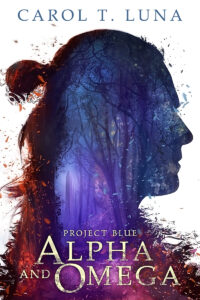
Everyone needs one, if not two or three in their writing career. As someone bent on self-publishing, finding one is not only a commitment to polish my work but also screening for a partner for years to come. Like in any relationship, it is crucial to find your best fit. The good ones lift you up and the worst ones bum you out. When it comes to your literary baby, you want the best love and care. It’s only natural.
DISCLAIMER: before you even get started walking this road, you really want to have your work checked out by beta readers, writing circles, etc. When did I call it quits? When I felt there was nothing more I could do to improve my work. Otherwise, you will pay money for things that are easy to spot and may potentially miss out on the more crucial and difficult things that a professional would otherwise sniff out!
Once past that hump, it’s time to shop around. I didn’t expect it to be such a daunting task at first but it took me three weeks and all the while I wished there were more resources about the process.
Here are 6 places to start looking:
1. Word of Mouth
If this wasn’t obvious enough. Yeah.
2. Books
Have a book you really like? Check the credits, check the first couple of pages everyone skips: you might find a name dropped here or there. Online marketplaces also may list the editors alongside the authors.
3. Social Sites
Subreddits like r/Writing, r/HireAnEditor, kBoard, and even Goodreads, all have groups, pages, or megathreads of people who are looking for jobs. Archives of older posts yield valuable information: recommendations and vetting from several years ago means they can only be better now!
4. Search Engine
Yes, of course, the almighty Google. Thanks to the way you can pay for placements on result pages, go through the first few pages and beyond. Keep looking until you get something completely irrelevant in your search. Switch up your search terms and do the same thing. You’d be surprised how many fall through the cracks.
5. Reedsy
Reedsy is an author’s marketplace: anything that you’d need a job for in the publishing realm, Reedsy can offer it to you. The site earns money by marking up a per cent fee for every collaboration you decide to book. In return, you get easy access to vetted editors, book cover artists, etc. A one stop and shop place.
6. Editorial Freelancers Association
Not everyone joins a professional association (after all, it requires a fee and no guarantee that the payee receives any work) but I see it as a vetting tool. Someone who joins one is serious about their career. Their site also makes it easy to find potential candidates. The directory is quick and painless with a quantity of filters that would make Google jealous. Best of all, most of these editors also have links to personal websites for contact information.
Did you find yourself opening a 100 tabs yet? Good, because that was the easy part.
Putting it All Together:
1. Be Specific
While screening, look for someone who wants to read your genre. Find the bios page. Someone is going to be looking at your baby and while you cannot guarantee they will enjoy your book, make it in your favor. Make it so that the criticism is easier to bear.
Identify the services you’d think you need. This is especially important if you have a limited budget. Do you need big picture things (a developmental edit)? Do you need line edits? You get what you pay for, especially for an Editor, but sometimes there’s only so much you can.
Be just as specific in your inquiry. Treat it like a mini-query: include the word count, genre, a brief bit of your plot, a sample of your work. Include what services or qualities you are looking for (someone who is willing to be blunt, someone who is timely and thorough, easy to reach, etc.). Talk a bit about yourself.
Want to make sure the prices are fair? The EFA got you covered.
2. Be Organized
Make an excel sheet. Or a table. Or a piece of paper. Something that will help you keep your sanity while you wait on people’s replies and think about the ones you received thus far. Here’s what I ended up using:

Feel free to take it.
3. Request Samples
When I started, I had no idea what I wanted in an editor. However, I did after a few samples of my own work. This step is pretty important! If someone is unwilling to spend the time on this, they better have a good reason and reputation.
Something I learned in hindsight: submit something that you polished but not quite. See if someone will pick it apart for you!
4. Compare Pros and Cons
If you find that you mesh with more than one person, it all comes down to costs and prices. Most people have the usual package: they will go through your work in one pass, write a big letter/make line edit, and be available for questioning afterwards. However, some people work differently. Some offer more alongside their services than others. Ask for their specific work process. How many passes will they conduct? When will they write the summary? Will they include more than just that big letter? Are there chapter breakdowns? Will they include line edits or is that a separate service? How will you be able to communicate with them after the fact, by email or by phone? And of course, what is their availability and timeframe? Most editors I inquired were booked out a month or three in advance; one was booked out for 6!
5. It’s All About the Little Things
If you simply can’t choose, take a look at what each individual will offer. Someone offered me their marketing experience. Someone offered to call me first to discuss everything: my thoughts, my wants, their thoughts. Some offered a call afterwards as a teaching tool, some allowed emails only. Someone requested to see the middle of my book as well as the beginning (someone who is serious!). Some offered contracts, some didn’t offer any other than a verbal agreement. (I suggest you get a contract; this protects everyone).
6. And Of Course, Give Yourself Time
When the responses start flooding in, it’s easy to get overwhelmed. Judge by your gut. And if you can’t make the choice right away, maybe it’s because they’re not the one. Maybe it’s the next person you talk to. Don’t settle!
One Final Thing:
Shopping around for services means that you are spending someone’s time for an opportunity for work. Be respectful when you turn people down. Tell people if you are waiting, that you are waiting on others. Don’t be that client. Everyone appreciates communication and being on the same page is extremely important. The Golden Rule exists for a reason.












